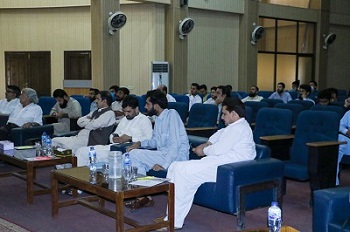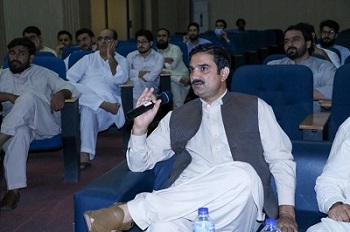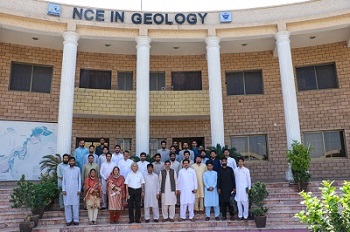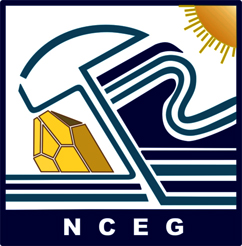Seminar/Webinar
Topic: Climate Change Impact on Glaciers in Pakistan Opportunities and Challenges
on September 13th, 2021, 11am
The National Center of Excellence in Geology (NCEG), University of Peshawar organized a seminar titled “climate change impacts on glaciers in Pakistan: challenges and opportunities”. NCEG invited Dr Sher Muhammad, who is a remote sensing specialist (cryosphere monitoring lead) at the international center for integrated mountain development (ICIMOD), Kathmandu, Nepal. Dr Sher presented his research work on glaciers from his PhD research and while working for ICIMOD. He explained glacier changes in the upper Indus Basin observed through precise GPS measurement and using satellite remote sensing data including Ice, Cloud, and land Elevation Satellite (ICESat), Advanced Spaceborne Thermal Emission and Reflection (ASTER), Land Satellite (Landsat), Sentinel, Moderate Resolution Imaging Spectroradiometer (MODIS) and open source and commercial tools. He pointed out that the concept of Karakoram anomaly is slightly changing because the glaciers here are slightly losing mass rather than gaining. These results are from his published articles with the high-resolution data from satellites and field observations. He emphasized on Continuous ground-based glacier observations to cope with glacier-related hazards and manage water resources for various applications including agriculture, hydropower, and households.
He added that glacier monitoring by high-resolution remote sensing images, Digital elevation models and radar data are equally important for precise glacier monitoring. Continuous glacier changes and observations should be coordinated with stakeholders and decision makers for water availability and vulnerability to glacier related hazards. In addition, future projections of glacier should include validation through ground and remote sensing based monitoring.
Although, a number of datasets and tools are freely available but there is limited capacity of researchers in Pakistan on glacier monitoring. To overcome this issue, he started capacity building program funded BY ICIMOD for Pakistani early career researchers and students since 2019. Two trainings are already conducted in the last two years and the third one is planned this year in next month. The training will soon be announced through ICIMOD website www.icimod.org.
 |
 |
 |
 |

